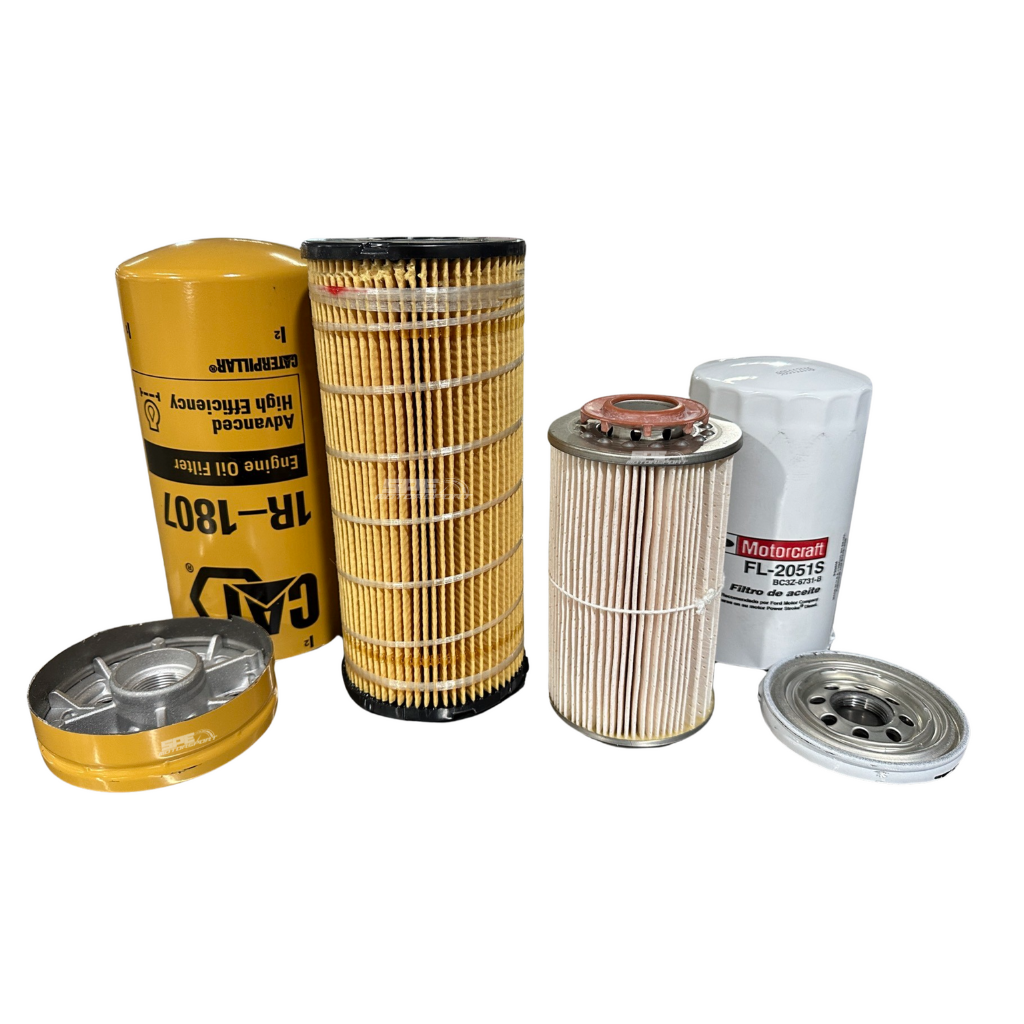Your Cart is Empty
FREE SHIPPING TO USA!*exclusions apply
FREE SHIPPING TO USA!*exclusions apply

Understanding the differences in oil filter technologies is critical for ensuring the long-term health and efficiency of your vehicle's engine. In this context, the debate between using Caterpillar's (Cat) non-bypass oil filters versus factory-installed Ford bypass filters, such as the Motorcraft FL2051S, merits a comprehensive analysis. This discussion focuses on oil filtration efficiency, engine protection, and the importance of maintenance in ensuring optimal performance under various operational conditions, particularly in cold weather.

Bypass filters, often used in many factory settings including Ford models, allow a portion of the engine oil to bypass the filter in certain conditions. The conventional wisdom suggests this design is beneficial in preventing harm via filter clogging and maintaining oil flow, particularly in cold weather or when maintenance is neglected. However, bypass filters present a significant concern: in cold conditions, the oil can be so thick that, even when bypassed, it doesn't properly flow and lubricate critical engine bearings, leading to potential engine damage. Envision Pumping a sufficient volume of oil through a clearance of .0015 in between your critical bearings (mains, rods, and cam). If the Bypass is activated due to clogged filter media then there are more than likely many issues with your engine and you didn't care enough to maintain it properly to begin with. So the damage has already been done. In other words the bypass is a Band-Aid by design, and for situations where the engine should not be operating anyway.
Cat's non-bypass filters, such as the 1R-1807, ensure all engine oil is thoroughly filtered. This approach ensures engine cleanliness and longevity and, with technological advancements, concerns about oil flow in cold temperatures have been addressed. The filter media surface area is so large that when maintained properly the 1R1807 flows as much as the factory FL2051S/FL2124S filter with the bypass open even in the negatives for temperature.
Cat non-bypass filters offer superior filtration capabilities, ensuring cleaner oil circulation, reduced engine wear, and more efficient operation. Unlike bypass filters, these non-bypass filters maintain efficient oil flow even in colder climates, assuming appropriate vehicle maintenance and correct oil grade use, thus negating traditional concerns about using non-bypass filters in such conditions.


While Ford's factory bypass filters like the FL2051S/FL2124S provide a degree of convenience and a safety net for engines under inconsistent maintenance, they do not offer the same level of protection as Cat's non-bypass filters, particularly in cold weather conditions where clean lubrication is crucial. For vehicle owners prioritizing engine health and efficiency, Cat non-bypass filters like the 1R-1807 represent a more robust and effective choice. They deliver unparalleled filtration, ensure consistent oil cleanliness, and maintain proper lubrication, contributing to superior engine protection and longevity. Their design, backed by industry trust and data, marks a substantial advancement in oil filter technology and engine maintenance, especially in challenging conditions. To sum things up, if the oil is so cold that it activates the bypass valve then the engine oil or engine should be warmed via a block heater or engine oil heater regardless of the filter type. If the bypass is opening because of neglect to maintain your vehicle, then you're just an asshole who's asking for failure to begin with. Be smart and filter your oil the best you can at all times and operate your engine in a manner that makes sense!
Comments will be approved before showing up.
